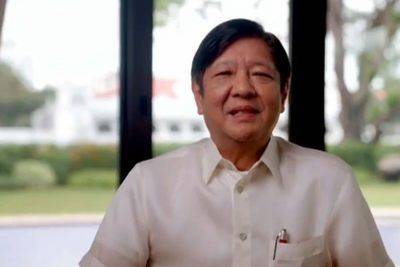President Marcos to APEC: Address climate injustice
SAN FRANCISCO — President Marcos has called for stronger economic and technical cooperation on climate action as he urged fellow leaders of Asia-Pacific Economic Cooperation (APEC) economies to recognize the “historical climate injustice” suffered by countries least responsible for the problem.
Speaking during the APEC leaders’ informal dialogue here yesterday, Marcos said climate issues have become “more acute,” demanding “strong, immediate and coordinated action.”
He said APEC offers a unique opportunity to explore and incubate multifaceted and cross-cutting policy options and best practices for transition to a clean, renewable and sustainable economy.
“APEC’s work must reflect a historical climate injustice for those that are least responsible suffer the most,” the President said.
“APEC can contribute to a trade and investment environment that assists economies in cutting emissions, facilitating climate financing, and supporting technology transfer, especially for the most vulnerable economies,” he said. “Technology diffusion ensures that green energy solutions are accessible and affordable to all. In this regard, I call for stronger economic and technical cooperation.”
Regarded as one of the countries most vulnerable to climate change, the Philippines is visited by about 20 typhoons every year. The country has committed to cut carbon emissions by 70 percent by 2030 even if it is not a major source of greenhouse gases.
Citing APEC’s voluntary and consensus principles and its equal partnership and shared responsibility, Marcos said mitigation strategies that incorporate supportive supply-side and demand-side measures may result in better outcomes rather than relying only on methods like carbon taxes and phasing out inefficient fossil fuel subsidies.
“On the supply side, deeper collaboration in advancing and adopting affordable and accessible renewable energy and low-carbon technologies can steer us away from fossil fuel reliance. Using science, technology, and innovation and cooperation in research will lower costs of development, enhance the quality of technologies, and expedite climate mitigation solutions,” he said.
“On the demand side, the promotion of







